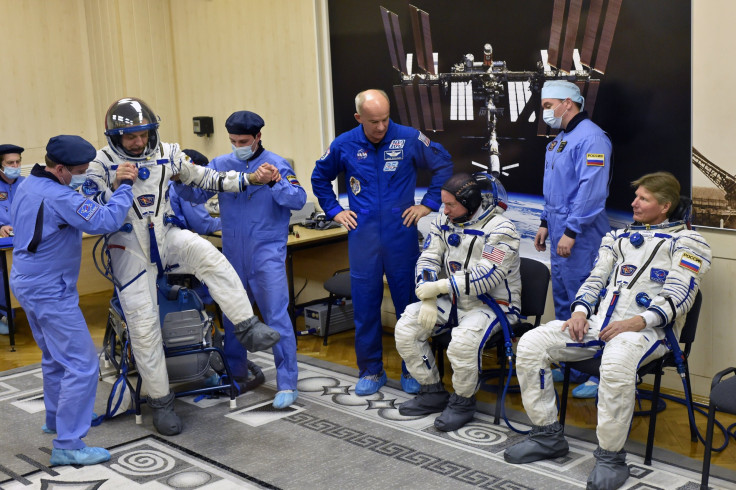Russia To Move ISS Astronaut Training To Crimea, Reviving Discussion About US Stance On Annexation

A Russian official recently confirmed plans to move International Space Station training sessions to facilities in Crimea next year -- a decision that media outlets have previously speculated could put the United States, which has opposed the Russian annexation of the Ukrainian peninsula, in an awkward position. The U.S. would either have to send its astronauts there, essentially recognizing Russia's ownership, or leave astronauts untrained, which means they're automatically disqualified for flight certification, NBC News reported.
The U.S. embassy in Moscow did not comment to the Moscow Times about how the countries would handle this. Russia NASA official Sean Fuller told the paper he hadn't heard that Roscosmos was considering moving the center.
But Yury Lonchakov, head of the cosmonaut training center in Russia, told TASS on Friday that plans to shift survival training to Crimea were in motion. Astronauts will participate in exercises in the mountains and waters of Crimea, which was annexed by Russia in March 2014.
"We like it in Crimea, and the conditions there are similar to the realistic ones," Lonchakov said. "Last year, we studied conditions for training, discussed it with the Navy, with authorities of Sevastopol ... This year, we are not ready yet, but next year we shall have sea training programs in Crimea. We used to have a base near Feodosiya and the latest training programs in Crimea were organized in 2007."
Lonchakov first introduced the idea in September 2014, sparking discussion among many about the consequences for international space travel collaboration. Astronauts from the U.S., Europe and Japan could be affected. Complicating the situation is the fact that Russia owns the only way for astronauts to reach the ISS: Soyuz, BBC reported last year.
“The issue is being studied, and all decisions will be announced later," Roscosmos spokesman Mikhail Fadeyev told the Moscow Times.
Michelle Taylor, the editor-in-chief of online technology publication Laboratory Equipment, wrote a blog post Monday condemning the U.S. for potentially working with Russia on the ISS but not China, which Congress banned from being involved over national security concerns. "The ISS bills itself as an international research effort; therefore, it should be able to rise above the politics—in every circumstance, not just select ones," Taylor said. "It should be a place of neutrality, where any and all nations with the intent of advancing scientific research are welcome."
© Copyright IBTimes 2024. All rights reserved.












